As the demand for convenient and healthy cooking solutions continues to rise, private label contact grills have emerged as a popular choice for both consumers and businesses. This guide delves into the nuances of the private label contact grill market, exploring the benefits of partnering with a reliable supplier, the key trends shaping the industry, and the future outlook for this growing sector in Europe and the U.S. By understanding the complexities and opportunities within this niche, businesses can capitalize on the burgeoning market for private label contact grills.
The Rise of Contact Grills in the European and American Markets
The contact grill has become a staple in kitchens across Europe and the United States, experiencing a significant surge in popularity. Once a niche product, these versatile cooking appliances have now become a must-have for many home chefs and culinary enthusiasts. Let’s delve into the factors that have contributed to the rise of contact grills in these markets.
One of the primary reasons for the surge in demand is the convenience they offer. Contact grills are compact, easy to use, and require minimal cleanup. They provide a quick and efficient way to cook a variety of foods, from steaks and burgers to vegetables and seafood. The even heat distribution and non-stick surfaces make cooking a breeze, appealing to busy individuals and families alike.
In Europe, the emphasis on health and wellness has played a crucial role in the popularity of contact grills. Consumers are increasingly seeking healthier cooking methods that reduce the need for added fats and oils. Contact grills allow for grilling with minimal fat, which can lead to lower calorie counts and a healthier diet. This health-conscious trend has propelled the growth of contact grills in countries like Germany, the UK, and France.
Similarly, in the United States, the rise of contact grills can be attributed to the growing demand for outdoor cooking. Americans love their grills, and contact grills offer a convenient alternative for those who prefer cooking indoors or in smaller spaces. The ability to achieve that classic grilled flavor without the hassle of a traditional grill has made contact grills a favorite among grill enthusiasts.
The convenience and health benefits of contact grills have also been bolstered by technological advancements. Modern contact grills often come with features like adjustable heat settings, digital temperature controls, and even built-in timers. These innovations have made the cooking experience more intuitive and tailored to individual preferences, further fueling the demand in both Europe and the U.S.
Retailers have also played a significant role in the growth of contact grills. Supermarkets, department stores, and online marketplaces have embraced the product, offering a wide range of options to consumers. The availability of different brands, styles, and price points has made contact grills accessible to a broad audience, from budget-conscious shoppers to those looking for premium features.
Another factor contributing to the rise of contact grills is the influence of social media and cooking shows. Influencers and chefs often showcase their culinary creations using contact grills, highlighting the versatility and ease of use. This exposure has sparked interest and curiosity among viewers, leading them to purchase their own contact grills to replicate these recipes at home.
The market for contact grills has also seen an increase in private label offerings. Retailers have recognized the value in providing their customers with a branded alternative to well-known brands. Private label contact grills often come at a lower price point, making them an attractive option for budget-conscious consumers. This trend has not only expanded the market but has also allowed retailers to differentiate themselves from competitors.
In Europe, the focus on sustainability and eco-friendly products has also influenced the contact grill market. Consumers are more likely to purchase products that are energy-efficient and have a smaller carbon footprint. As contact grills consume less energy than traditional grills, they align with these environmental concerns, further boosting their appeal.
The rise of contact grills in the European and American markets is a testament to the changing landscape of home cooking. As consumers continue to seek convenience, health, and innovation, contact grills have emerged as a versatile and practical solution. With the support of retailers, technological advancements, and the influence of social media, the future looks bright for contact grills in these dynamic markets.
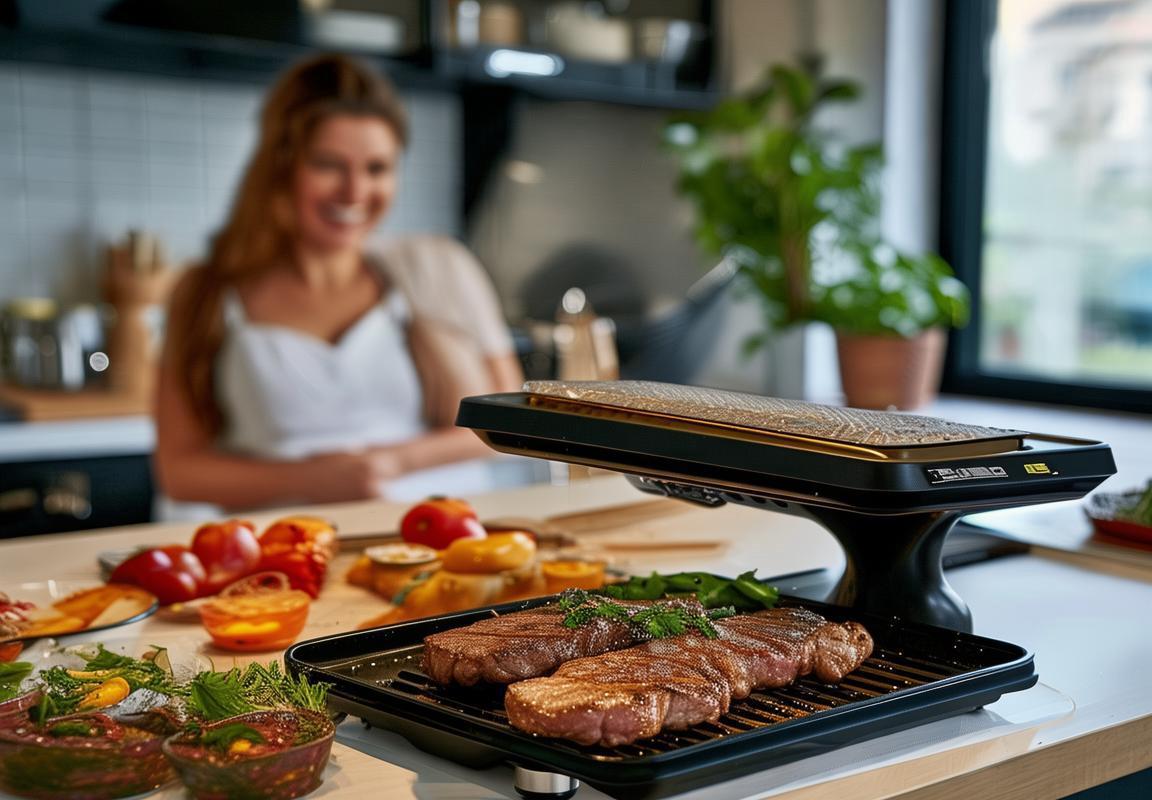
Understanding the Demand for Private Label Contact Grills
In recent years, the demand for private label contact grills has surged in both the European and American markets. This trend can be attributed to several factors that have reshaped consumer preferences and retail dynamics.
Consumers are increasingly seeking unique and personalized products, and private label contact grills offer a customized solution. With a wide range of designs, functionalities, and price points, these grills cater to diverse consumer needs and preferences. From sleek, modern models to traditional, classic designs, private label grills provide options that resonate with various tastes and lifestyles.
The convenience factor is another key driver behind the growing demand for private label contact grills. These grills are designed to be easy to use and maintain, appealing to busy consumers who want to enjoy the benefits of outdoor cooking without the hassle. The compact size and portability of many private label contact grills make them perfect for apartments, balconies, and outdoor patios, where space is limited but the desire for grilling remains strong.
Retailers are also recognizing the value of private label brands in enhancing their product offerings. By offering private label contact grills, stores can differentiate themselves from competitors and attract customers looking for quality products at competitive prices. This trend is particularly evident in supermarkets, department stores, and specialty retailers who are integrating private label into their strategy to boost sales and customer loyalty.
The health-conscious consumer movement has played a significant role in the popularity of private label contact grills. These grills are often associated with healthier cooking methods due to their ability to cook food with minimal oil. This aligns with the broader shift towards healthier eating habits, making private label grills an attractive choice for consumers who are looking to improve their diet while still enjoying the taste of grilled foods.
Another factor contributing to the demand for private label contact grills is the rise of social media and influencer marketing. Consumers are more influenced by peer reviews and recommendations online than ever before. As private label grills gain traction through social media platforms, they become more visible to potential buyers, driving demand and sales.
Moreover, the economic landscape has played a role in the preference for private label products. With the ongoing economic uncertainty, consumers are more price-sensitive and are seeking value for money. Private label contact grills offer a cost-effective alternative to branded competitors, making them an appealing choice for budget-conscious shoppers.
In the European market, the emphasis on sustainability and eco-friendly products has also contributed to the popularity of private label contact grills. Many consumers are looking for products that align with their values, and private label brands can often provide greener options that are produced with environmentally friendly materials and manufacturing processes.
Additionally, the versatility of private label contact grills is a major draw. These grills are not just for outdoor cooking; they can also be used indoors, making them a practical addition to any kitchen. Their ability to cook a variety of foods, from vegetables and meats to sandwiches and pizzas, adds to their appeal and marketability.
The rise of online shopping has also impacted the demand for private label contact grills. With more consumers turning to e-commerce for their purchases, retailers are capitalizing on this trend by offering private label grills through online platforms. This allows for wider distribution and easy access for customers who prefer shopping from the comfort of their homes.
Lastly, the trend towards experiential cooking has sparked interest in private label contact grills. As consumers seek out new and exciting culinary experiences, they are more open to trying different cooking appliances. Private label brands can tap into this trend by offering innovative and high-quality contact grills that promise unique grilling experiences.
In conclusion, the demand for private label contact grills in the European and American markets is a multifaceted phenomenon, driven by consumer preferences, retail strategies, health trends, economic factors, sustainability concerns, and the influence of digital marketing. As these factors continue to evolve, the demand for these grills is expected to grow, solidifying their place in the hearts and homes of consumers worldwide.
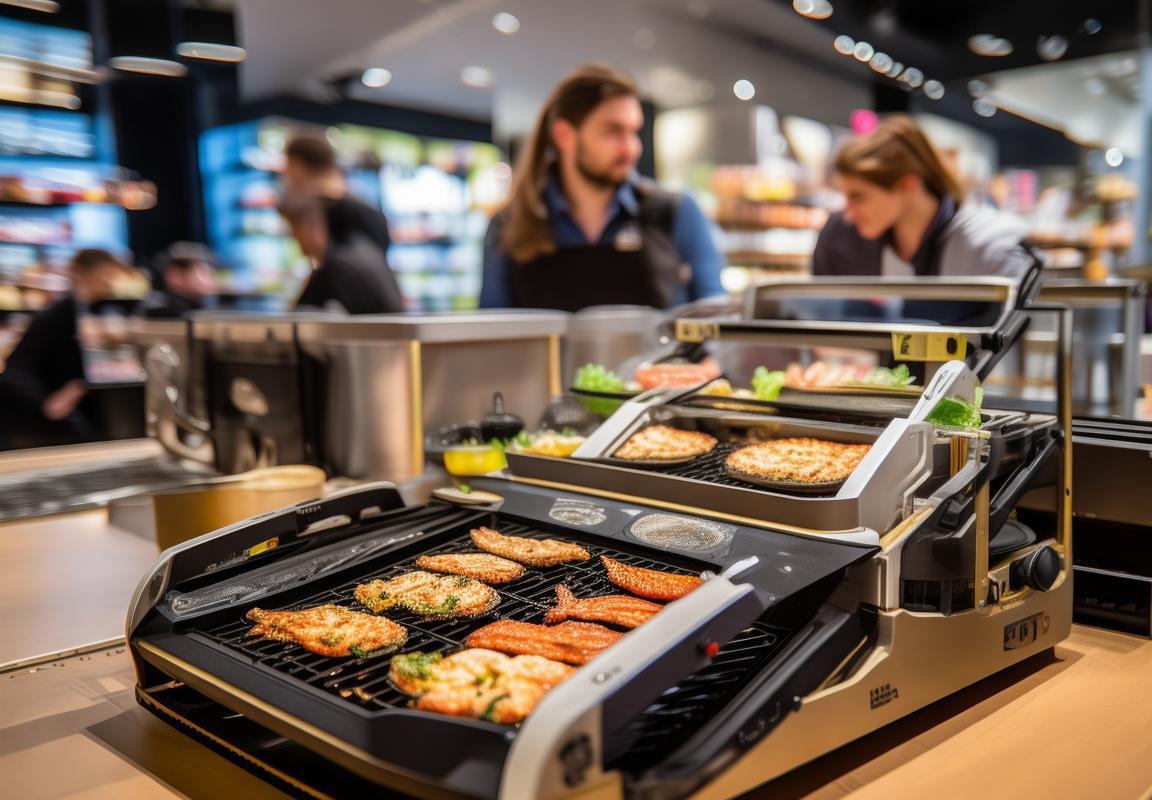
Key Trends Shaping the Contact Grill Industry in Europe and the U.S
The contact grill market in Europe and the U.S. has been witnessing a dynamic transformation, driven by several key trends that are reshaping the industry. From technological advancements to changing consumer preferences, these trends are setting the stage for the future of contact grills.
-
Emphasis on Health and WellnessConsumers in both Europe and the U.S. are increasingly health-conscious, leading to a surge in demand for kitchen appliances that promote healthier cooking methods. Contact grills, which offer a healthier alternative to traditional grilling methods that can add excess fats, have seen a rise in popularity. This trend is likely to continue as more people seek out low-fat, high-protein cooking options.
-
Smart Kitchen IntegrationThe integration of smart technology into everyday appliances is a growing trend, and contact grills are not immune. Smart contact grills equipped with digital interfaces, Wi-Fi connectivity, and apps that provide cooking instructions and recipes are becoming more common. These features not only enhance user experience but also cater to the tech-savvy consumer who appreciates the convenience and control offered by smart kitchen gadgets.
-
Compact and Portable DesignsAs urban living spaces become more cramped, there’s a growing demand for compact kitchen appliances. Contact grills that are designed to be portable and easy to store are becoming increasingly popular. These portable grills are perfect for small kitchens, apartments, or for those who enjoy outdoor cooking without the need for a large, permanent grill.
-
Eco-Friendly and Sustainable ProductsSustainability is a key concern for many consumers, and the contact grill industry is responding with eco-friendly designs. This includes using sustainable materials, energy-efficient components, and products that are designed for longevity to reduce waste. Brands that can offer a green story alongside their contact grills are likely to attract environmentally conscious customers.
-
Customization and PersonalizationToday’s consumers are looking for products that they can customize to suit their specific needs. Contact grill suppliers are responding by offering a variety of grill plates, heat settings, and even modular designs that allow for easy upgrades. Personalization is not just about the grill itself but also about the experience it provides, with features like adjustable cooking temperatures and built-in timers.
-
Increased Focus on Food SafetyWith the rise of foodborne illnesses and heightened awareness of health risks, contact grills that offer a safer cooking experience are in demand. Features such as non-stick surfaces, easy-to-clean designs, and precise temperature control are becoming more important. Brands that prioritize food safety are likely to gain a competitive edge in the market.
-
Global Flavors Influencing DesignThe culinary landscape is becoming more diverse, with global flavors influencing kitchen appliances. Contact grill suppliers are responding by offering a variety of grill plates that can replicate the cooking styles of different cultures, from the smoky flavors of American barbecue to the delicate taste of Mediterranean cuisine.
-
Social Media and Influencer MarketingSocial media has become a powerful tool for marketing kitchen appliances. Influencers and food bloggers are showcasing their favorite contact grill recipes and cooking tips, which can significantly impact consumer purchasing decisions. Brands that leverage social media and influencer partnerships effectively can see a direct boost in sales.
-
Price Sensitivity and Value for MoneyIn both Europe and the U.S., price remains a significant factor in purchasing decisions. Contact grill suppliers are responding by offering a range of price points, from budget-friendly models to premium, high-end units. Providing good value for money is crucial for capturing the attention of price-sensitive consumers.
-
Innovation in Cooking TechniquesThe contact grill industry is continuously innovating to offer new cooking techniques and experiences. From sous-vide capabilities to induction heating, suppliers are exploring new ways to enhance the cooking process. These innovations can attract both new customers and those looking to upgrade their existing kitchen equipment.
These trends are shaping the contact grill industry in Europe and the U.S., and as the market evolves, so too will the products and services offered to consumers. Brands that stay ahead of these trends and adapt their offerings accordingly will be well-positioned to capture the ever-growing demand for contact grills.
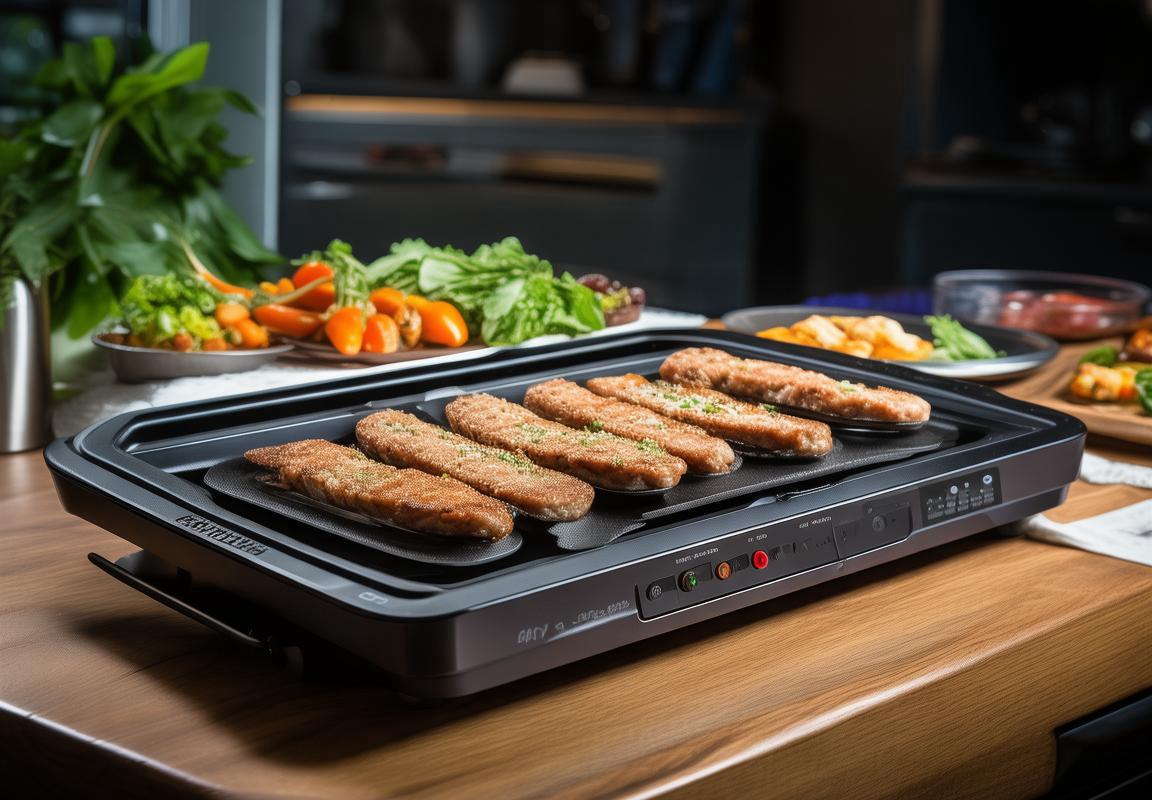
Benefits of Partnering with a Contact Grill Supplier for Private Label Opportunities
In the competitive landscape of the appliance market, partnering with a contact grill supplier for private label opportunities can yield a multitude of advantages. Here’s a closer look at the benefits that such collaborations can bring:
The Niche Appeal of Contact GrillsContact grills have gained popularity for their ability to cook food with minimal oil, making them a health-conscious choice for consumers. This niche appeal has opened doors for brands looking to tap into the growing demand for healthier cooking options.
Access to Cutting-Edge TechnologyA reputable contact grill supplier brings with them the latest technological advancements in cooking appliances. This ensures that your private label product stays ahead of the curve, offering consumers innovative features and improved performance.
Streamlined Production ProcessBy partnering with a contact grill supplier, you gain access to their well-established production facilities and supply chain. This means a streamlined process from design to manufacturing, reducing time to market and minimizing production costs.
Brand Customization and FlexibilityPrivate labeling allows you to customize the contact grill to align with your brand identity. You can choose from a range of sizes, designs, and functionalities, giving you the flexibility to cater to specific market segments or consumer preferences.
Quality AssuranceA reliable supplier prioritizes quality control throughout the manufacturing process. This means that your private label contact grills will meet or exceed industry standards, building trust with your customers and reducing the risk of returns or recalls.
Marketing SupportMany contact grill suppliers offer comprehensive marketing support to help you launch and promote your private label product. This can include co-branded marketing materials, assistance with packaging design, and even strategic advice on how to position your product in the market.
Cost EfficiencyPrivate labeling can be a cost-effective way to enter the market. Instead of investing heavily in manufacturing and distribution, you can leverage the supplier’s existing infrastructure, potentially lowering your overall investment and increasing your profit margins.
Global ReachA supplier with a global presence can help you expand your private label contact grill business beyond local markets. They can navigate international regulations, customs, and logistics, making it easier for you to reach a wider audience.
Collaborative InnovationWorking closely with a contact grill supplier fosters a collaborative environment where innovation is encouraged. This can lead to the development of new features or even the creation of entirely new product lines, keeping your brand fresh and competitive.
Sustainability and Eco-Friendly OptionsAs consumers become more environmentally conscious, there’s a growing demand for sustainable products. A supplier that prioritizes eco-friendly manufacturing processes and materials can help you offer a greener option to your customers.
Customer Service and After-Sales SupportA good supplier will also provide robust customer service and after-sales support. This means that if any issues arise with your private label contact grills, the supplier is there to help, ensuring customer satisfaction and maintaining your brand reputation.
Competitive PricingPrivate labeling allows you to negotiate better pricing with suppliers. Since you’re ordering in bulk, you can often secure lower costs per unit, giving you a competitive edge in the marketplace.
In summary, partnering with a contact grill supplier for private label opportunities can lead to a stronger brand presence, better product quality, and increased market appeal. The synergy between your brand and the supplier’s expertise can create a powerful combination that resonates with consumers and drives sales.
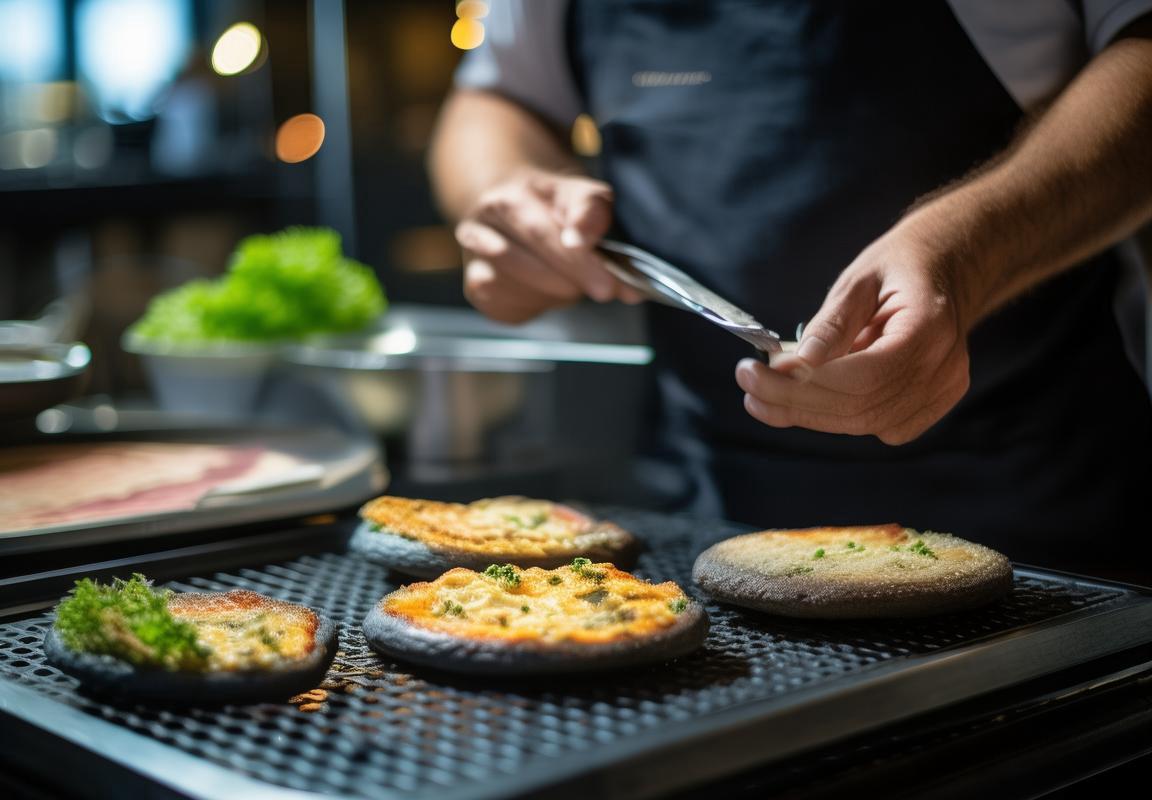
Selecting the Right Contact Grill Supplier: What to Look For
Navigating the world of contact grill suppliers for private label opportunities can be a game-changer for businesses looking to tap into a booming market. To ensure a successful partnership, it’s crucial to know what to look for in a supplier. Here are some key factors to consider:
Quality Control and StandardsA reputable supplier will prioritize quality control and adhere to stringent industry standards. Look for suppliers with ISO certifications, as they demonstrate a commitment to maintaining high-quality products. Ensure they have robust quality assurance processes in place, from raw material sourcing to final product inspection.
Innovation and Product DevelopmentThe contact grill market is constantly evolving, with new features and technologies emerging regularly. A supplier that invests in research and development is more likely to offer innovative products that can give your brand a competitive edge. Ask about their product development pipeline and how they stay ahead of industry trends.
Customization and Private Label CapabilitiesOne of the main attractions of private labeling is the ability to customize products to fit your brand’s identity. A supplier should offer a range of options for customization, from branding and packaging to product specifications. They should be flexible and willing to work with you to create a unique product that resonates with your target market.
Supply Chain ReliabilityA reliable supply chain is essential for ensuring consistent product availability and timely delivery. Evaluate the supplier’s logistics capabilities, including their inventory management, warehousing facilities, and shipping methods. A supplier with a strong supply chain can help mitigate risks associated with stockouts and delivery delays.
Financial StabilityPartnering with a financially stable supplier is crucial for long-term success. Look for suppliers with a solid track record, a history of profitability, and a clear business plan for the future. This stability ensures that they can invest in new technologies, maintain quality, and continue to meet your needs as your business grows.
Certifications and ComplianceIn the food industry, certifications and compliance with health and safety standards are non-negotiable. Ensure that the supplier complies with all relevant regulations, such as FDA standards in the U.S. and EU regulations in Europe. They should also have certifications for any specific dietary requirements or allergen-free products you plan to offer.
Customer Service and SupportA supplier’s level of customer service can significantly impact your business. Choose a supplier that offers excellent pre-sales and after-sales support. They should be responsive to your inquiries, able to provide technical assistance, and willing to work through any issues that arise during the partnership.
Technology and AutomationIn today’s market, technology plays a vital role in efficiency and cost-effectiveness. Look for suppliers who are leveraging technology and automation to streamline their operations. This can lead to better inventory management, reduced waste, and ultimately, lower costs for you as the private label partner.
Sustainability PracticesConsumers are increasingly conscious of sustainability, and this extends to the supply chain. A supplier with a commitment to sustainability may use eco-friendly materials, reduce energy consumption, and minimize waste. This not only aligns with consumer values but can also be a selling point for your brand.
Product Range and ScalabilityA diverse product range allows you to cater to different market segments and consumer preferences. A supplier that offers a broad selection of contact grills, from compact countertop models to commercial-grade units, can help you meet various customer needs. Additionally, ensure they have the capacity to scale production to meet your growing demand.
Long-Term Partnership PotentialFinally, consider the potential for a long-term partnership. A supplier who is invested in your success is more likely to offer competitive pricing, volume discounts, and collaborative support. Look for a supplier who values long-term relationships and is willing to grow with your brand.
By carefully considering these factors, you can select a contact grill supplier that aligns with your brand’s values and business goals. This strategic choice can set the stage for a successful private label venture in the contact grill market.

Case Study: Success Stories with Private Label Contact Grill Suppliers
In the realm of private label contact grill suppliers, there are numerous success stories that showcase the potential for brands to thrive in a competitive market. Here’s a glimpse into some of these tales:
The Brand that Turned a Niche into a Market LeaderOne private label contact grill supplier partnership led to a brand that carved out a significant niche in the market. By focusing on high-quality materials and innovative features, the brand quickly gained a reputation for durable and efficient grills. Their strategic marketing, highlighting the convenience and health benefits of contact grilling, resonated with consumers, propelling the brand to become a market leader within just a few years.
The Retailer’s Game-Changer with Customized GrillsA retailer approached a private label contact grill supplier looking to differentiate their product offering. By collaborating closely with the supplier, they were able to design a range of customized grills that catered to specific consumer preferences. This move not only enhanced the retailer’s product assortment but also strengthened their competitive edge, as customers appreciated the unique, personalized options.
The Global Expansion of a Newcomer BrandA relatively new brand, with a passion for outdoor cooking, sought a private label contact grill supplier to help them enter international markets. Through a robust partnership, the supplier ensured the brand’s grills met stringent global standards, while also providing logistical support for shipping and distribution. The brand’s successful entry into Europe and Asia was a testament to the supplier’s expertise in catering to diverse market needs.
The Manufacturer’s Revival with a Premium LineA contact grill manufacturer that had been struggling to stay afloat found a new lease on life by partnering with a private label contact grill supplier. The supplier introduced a premium line of grills that capitalized on the growing demand for high-end cooking equipment. This strategic collaboration allowed the manufacturer to leverage the supplier’s brand recognition and distribution network, leading to a significant increase in sales and a rejuvenated market position.
The E-commerce Giant’s Leap into Home AppliancesAn e-commerce giant decided to diversify its product range by offering contact grills under its private label. They turned to a supplier that could provide not only a high-quality product but also a seamless supply chain. The supplier’s ability to handle large volumes and maintain inventory levels was crucial for the e-commerce giant’s success. This partnership helped the online retailer establish a strong presence in the home appliances segment.
The Health-Conscious Consumer’s Favorite BrandA private label contact grill supplier worked closely with a health-focused brand to develop a line of contact grills that emphasized ease of cleaning and healthy cooking. The supplier’s attention to detail in terms of non-stick coatings and energy-efficient designs resonated with the target market, turning the brand into a favorite among health-conscious consumers. This collaboration demonstrated how a supplier can help a brand meet specific consumer needs.
The Innovation Trailblazer’s Breakthrough ProductAn emerging brand known for its innovation partnered with a private label contact grill supplier to create a breakthrough product that featured advanced technology and design. The supplier’s expertise in sourcing high-tech components and their ability to manage complex production processes were instrumental in bringing this unique grill to market. The result was a product that captured the attention of tech-savvy consumers and helped the brand establish itself as an innovator in the contact grill space.
The Small Business Owner’s Dream Come TrueFor a small business owner looking to break into the home appliance market, a private label contact grill supplier was the key to success. The supplier’s flexibility in handling small batch orders and their willingness to provide tailored branding solutions allowed the business owner to launch a unique and competitively priced product. The supplier’s support in marketing and sales helped the small business owner achieve significant growth in a short period.
These case studies highlight the transformative power of a successful partnership between a brand and a private label contact grill supplier. From niche market domination to global expansion and innovation, these collaborations showcase the potential for both parties to achieve remarkable results.
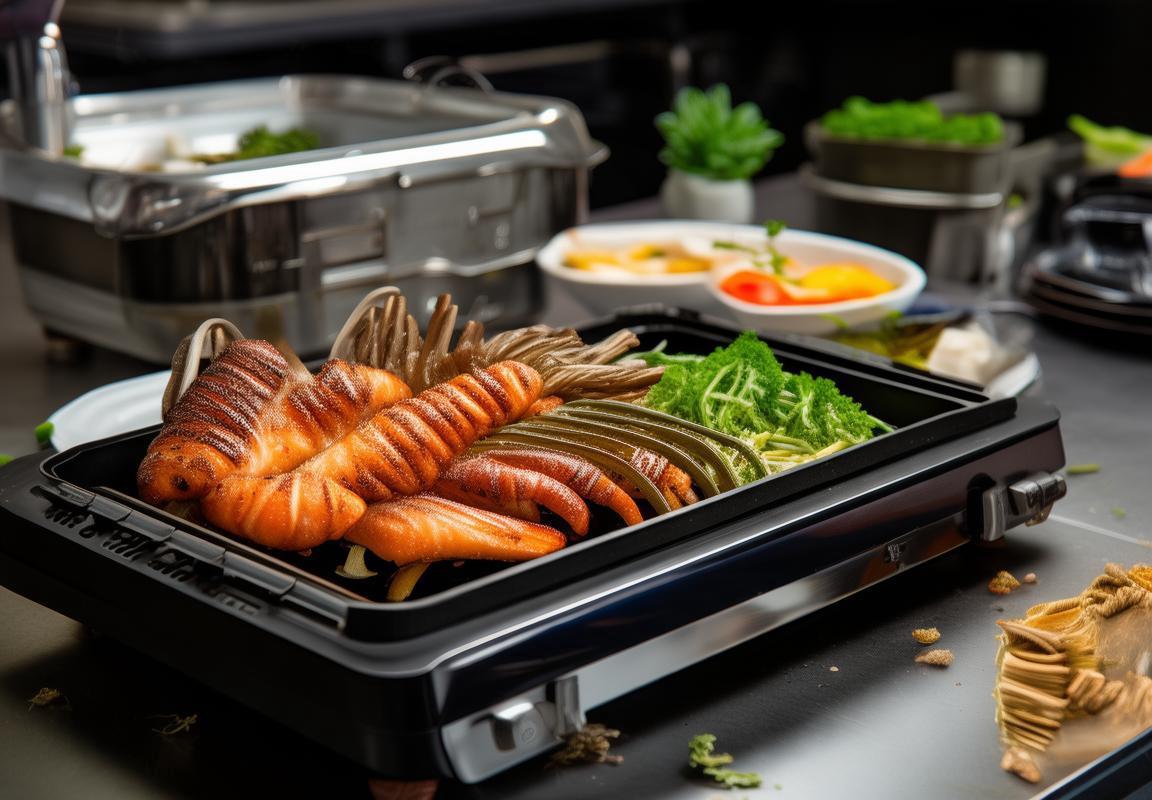
Navigating the Regulatory Landscape for Private Label Contact Grills
Understanding the intricacies of regulatory landscapes can be daunting, especially when it comes to private label contact grills. Here’s a detailed look at the key considerations and challenges in navigating this landscape:
The Essential Role of ComplianceCompliance with local and international regulations is non-negotiable in the private label contact grill industry. This means ensuring that all products meet safety standards, labeling requirements, and import/export regulations. One must delve into the specifics of these standards to truly grasp the scope of compliance.
Safety Standards and CertificationsSafety is paramount in the appliance industry, and contact grills are no exception. Ensuring that your private label grills adhere to safety standards like UL, CE, or ETL can be a game-changer. These certifications not only protect consumers but also provide a competitive edge in the market.
Labeling RegulationsLabeling requirements can vary significantly across different regions. Properly labeling your private label contact grills with accurate information on ingredients, manufacturing dates, and usage instructions is crucial. Mislabeling can lead to legal repercussions and damage to brand reputation.
Import/Export RegulationsFor private label contact grill suppliers, navigating import/export regulations is a complex task. Understanding customs duties, trade agreements, and compliance with foreign regulations is essential to avoid delays and costly penalties. This involves staying updated with the latest trade policies and ensuring all documentation is in order.
Environmental RegulationsAs sustainability becomes a key concern, environmental regulations are tightening. Private label contact grill suppliers must ensure that their products meet environmental standards, such as using recyclable materials or adhering to energy efficiency guidelines. This not only benefits the environment but also appeals to eco-conscious consumers.
Consumer Protection LawsConsumer protection laws vary by country and region, but they generally aim to safeguard consumers from unsafe products and deceptive marketing practices. Private label suppliers must be aware of these laws to avoid legal pitfalls and to build trust with their customers.
Intellectual Property RightsProtecting intellectual property is critical in the private label market. Suppliers need to ensure that their products do not infringe on existing patents or trademarks. This involves thorough research and due diligence to avoid costly legal battles and brand dilution.
Product Liability InsuranceGiven the potential risks associated with contact grills, having adequate product liability insurance is a must. This insurance can protect the supplier from claims related to product defects or accidents, which is especially important when dealing with private label brands that may not have the same level of financial backing.
Staying Informed and AdaptedThe regulatory landscape is constantly evolving, with new standards and laws being introduced regularly. Private label contact grill suppliers must stay informed about these changes and be prepared to adapt their operations accordingly. This could involve investing in legal counsel, attending industry conferences, or subscribing to regulatory updates.
Collaboration with ExpertsNavigating the regulatory landscape can be overwhelming, so many suppliers opt to collaborate with experts. This could mean hiring a regulatory compliance team, outsourcing compliance tasks, or partnering with a third-party logistics provider that specializes in regulatory navigation.
In conclusion, the regulatory landscape for private label contact grills is multifaceted, requiring a deep understanding of safety standards, labeling regulations, import/export laws, environmental considerations, consumer protection, intellectual property rights, and more. By staying informed, collaborating with experts, and maintaining a commitment to compliance, suppliers can ensure a smooth and successful journey in the private label market.

The Future Outlook for Private Label Contact Grills in the European and American Markets
The European and American markets have seen a significant shift towards private label contact grills, driven by consumer preferences and market dynamics. As we look ahead, several factors are poised to shape the future of this niche within the appliance industry.
Consumer Health Consciousness Continues to Drive DemandOne of the most prominent trends influencing the future outlook for private label contact grills is the growing health consciousness among consumers. With an increasing focus on healthy eating habits, there’s a surge in demand for cooking methods that minimize oil usage and offer healthier alternatives to traditional grilling. Private label brands can capitalize on this trend by offering contact grills that cater to these health-conscious consumers.
Technological Advancements Fuel InnovationTechnological advancements are another key driver in the future outlook for private label contact grills. As manufacturers continue to innovate, we can expect to see contact grills with improved features such as enhanced heating elements, precise temperature control, and even smart technology integration. These innovations not only improve the cooking experience but also open up new opportunities for private label brands to differentiate their products in a crowded market.
Sustainability and Eco-Friendly Practices Gain TractionSustainability is a growing concern for consumers and businesses alike. Private label contact grill suppliers that prioritize eco-friendly practices, such as using recyclable materials or energy-efficient designs, are likely to gain a competitive edge. As consumers become more environmentally conscious, the market for sustainable private label contact grills is expected to expand, offering a new avenue for growth.
E-commerce and Direct-to-Consumer Models Expand ReachThe rise of e-commerce and direct-to-consumer (DTC) models has significantly impacted the appliance industry. Private label contact grill suppliers can leverage these platforms to reach a wider audience without the need for traditional retail partnerships. This direct connection with consumers allows for more personalized marketing and the ability to quickly adapt to changing trends, which can be a game-changer in the competitive landscape.
Cultural Diversity Influences Product DevelopmentThe diverse cultural landscape in Europe and the U.S. is a fertile ground for innovation in the contact grill market. As private label brands cater to a variety of culinary preferences, we’re likely to see a surge in products that cater to specific ethnic or regional cooking styles. This cultural diversity not only broadens the market but also encourages suppliers to create more versatile and adaptable contact grill models.
Collaboration with Local Chefs and Influencers Enhances Brand AppealBrands that collaborate with local chefs and influencers to develop unique recipes or cooking techniques can create a strong brand identity and appeal. By aligning with culinary experts, private label contact grill suppliers can offer products that not only meet functional needs but also provide an enriching cooking experience. This approach can help build trust and loyalty among consumers.
Global Supply Chain Challenges and OpportunitiesThe global supply chain has faced unprecedented challenges in recent years, but these challenges also present opportunities for private label contact grill suppliers. Those who can navigate these complexities, such as by diversifying their supply sources or investing in local production, may find themselves in a stronger position to meet demand and maintain product availability.
Regulatory Compliance and Safety Standards Remain ParamountAs the market for private label contact grills grows, so does the importance of regulatory compliance and safety standards. Suppliers must ensure that their products meet all relevant health and safety regulations, which can be a significant differentiator in the market. Brands that prioritize quality and safety are more likely to establish a reputation for reliability and trustworthiness.
The future of private label contact grills in the European and American markets looks promising, with a blend of health-conscious consumers, technological innovation, sustainability, and cultural diversity fueling growth. By staying attuned to these trends and adapting to the evolving market landscape, private label brands can position themselves for long-term success.
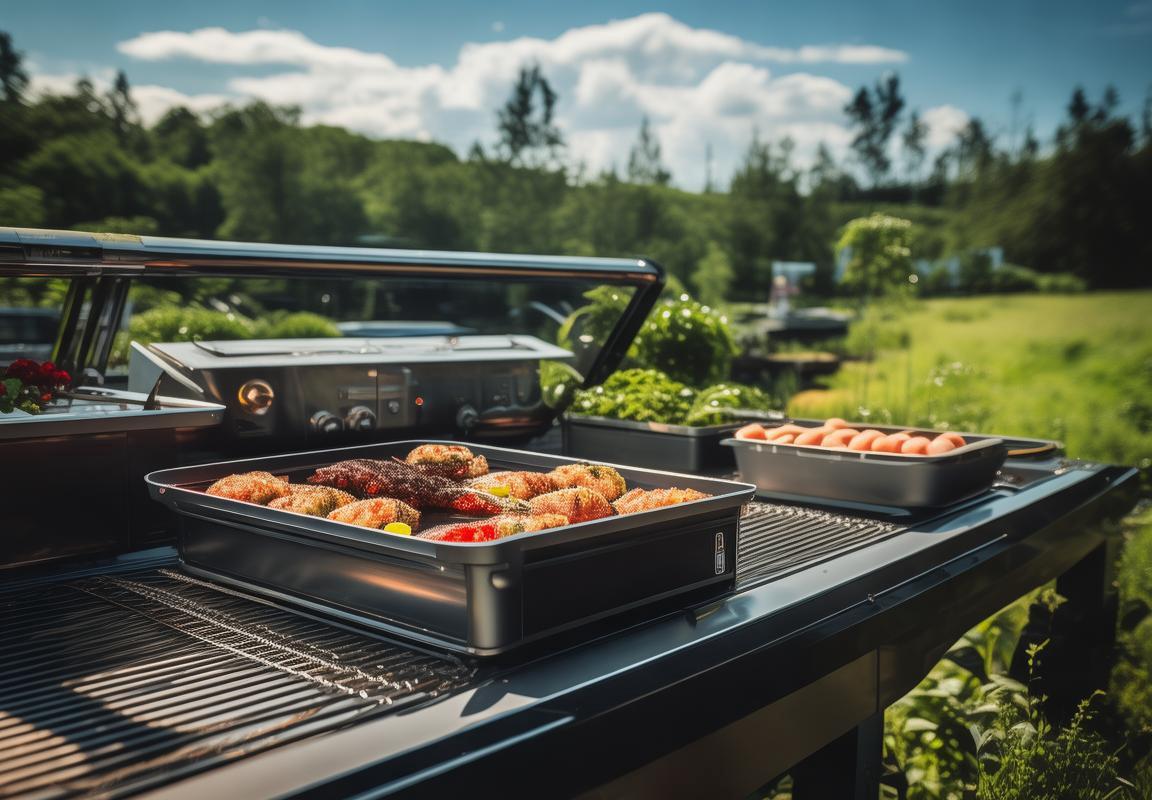
Conclusion: Embracing Private Label Contact Grills for Business Growth
In embracing private label contact grills for business growth, several factors converge to create a compelling opportunity for entrepreneurs and established brands alike. The market’s trajectory, consumer preferences, and strategic partnerships all play pivotal roles in this evolving landscape. Here’s how these elements intertwine to shape the future of private label contact grills in the European and American markets.
The market for private label contact grills has seen a surge in popularity, driven by the convenience and health benefits they offer. Consumers are increasingly seeking out cooking appliances that allow for healthier eating habits, and contact grills fit this bill perfectly. The compact size and ease of use make them a staple in both home kitchens and commercial settings, from cafes to restaurants.
As the demand for contact grills continues to rise, so does the opportunity for businesses to tap into this market with private label offerings. By aligning with the right supplier, companies can tailor their products to meet specific market needs, whether that’s catering to the eco-conscious consumer or those looking for a quick, hassle-free cooking solution.
One of the key advantages of private label contact grills is the ability to customize the branding and features. This customization can range from the design of the grill itself to the packaging and marketing materials, allowing businesses to create a unique selling proposition that resonates with their target audience. This level of personalization is particularly appealing in a market where consumers are looking for products that reflect their individuality and values.
The European and American markets have distinct preferences and regulatory requirements that businesses must navigate. For instance, European consumers often prioritize energy efficiency and environmental sustainability, which means private label contact grills must be designed with these factors in mind. Similarly, American consumers may be more interested in specific cooking functionalities, such as adjustable heat settings or non-stick surfaces.
In the European market, the rise of health-conscious consumers has led to a growing interest in contact grills. These appliances are often seen as a healthier alternative to traditional grilling methods, as they reduce the need for excess oil and fat. This trend is supported by the availability of high-quality, stainless steel contact grills that are durable and easy to clean, making them a practical choice for busy households.
In the U.S., the convenience factor is paramount. Contact grills are perfect for individuals who want to enjoy the taste of grilled foods without the time and effort associated with outdoor grilling. The market is also influenced by the rise of meal prep kits and the demand for quick, nutritious meals. Private label contact grills can be an integral part of this trend, offering consumers a way to cook their meal prep ingredients to perfection.
Collaborating with the right contact grill supplier is crucial for businesses looking to succeed in this market. A reliable supplier will not only provide high-quality products but also offer expertise in regulatory compliance. This includes adhering to safety standards, such as UL certifications, and ensuring that the grills meet the necessary environmental and health regulations.
The future outlook for private label contact grills is promising, with several trends set to shape the industry. One such trend is the integration of smart technology. As consumers become more tech-savvy, they are increasingly interested in appliances that offer connectivity and control via smartphone apps. Private label contact grills with these features could become a significant draw for consumers looking to enhance their cooking experience.
Another trend is the focus on sustainability. As awareness of environmental issues grows, businesses that can offer eco-friendly contact grills, such as those made from recycled materials or with energy-saving capabilities, may find a competitive edge in the market.
In conclusion, embracing private label contact grills for business growth requires a keen understanding of market trends, consumer preferences, and regulatory landscapes. By partnering with a reputable supplier, businesses can capitalize on the rising demand for convenient, healthy cooking solutions and create a unique brand presence in the European and American markets. Whether it’s through customization, smart technology, or eco-friendly designs, the future of private label contact grills looks bright for those willing to innovate and adapt.